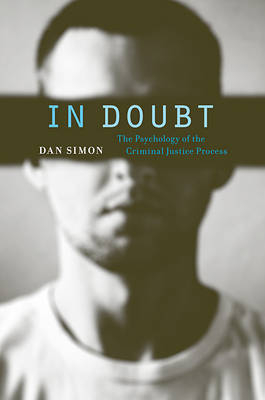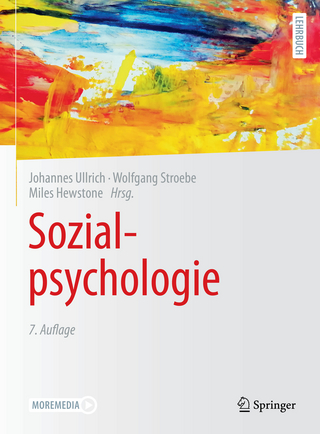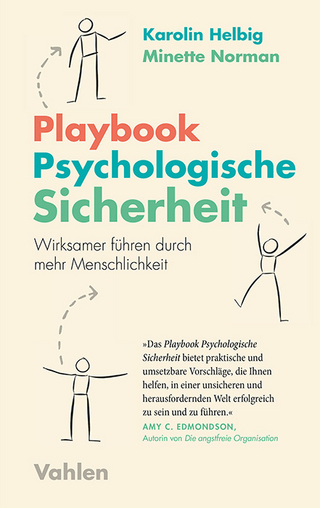
In Doubt
The Psychology of the Criminal Justice Process
Seiten
2012
Harvard University Press (Verlag)
978-0-674-04615-3 (ISBN)
Harvard University Press (Verlag)
978-0-674-04615-3 (ISBN)
Criminal justice is unavoidably human. Detectives, witnesses, suspects, and victims shape investigations; prosecutors, defense attorneys, jurors, and judges affect the outcome of adjudication. Simon shows how flawed investigations produce erroneous evidence and why well-meaning juries send innocent people to prison and set the guilty free.
The criminal justice process is unavoidably human. Police detectives, witnesses, suspects, and victims shape the course of investigations, while prosecutors, defense attorneys, jurors, and judges affect the outcome of adjudication. In this sweeping review of psychological research, Dan Simon shows how flawed investigations can produce erroneous evidence and why well-meaning juries send innocent people to prison and set the guilty free.
The investigator’s task is genuinely difficult and prone to bias. This often leads investigators to draw faulty conclusions, assess suspects’ truthfulness incorrectly, and conduct coercive interrogations that can lead to false confessions. Eyewitnesses’ identification of perpetrators and detailed recollections of criminal events rely on cognitive processes that are often mistaken and can easily be skewed by the investigative procedures used. In the courtroom, jurors and judges are ill-equipped to assess the accuracy of testimony, especially in the face of the heavy-handed rhetoric and strong emotions that crimes arouse.
Simon offers an array of feasible ways to improve the accuracy of criminal investigations and trials. While the limitations of human cognition will always be an obstacle, these reforms can enhance the criminal justice system’s ability to decide correctly whom to release and whom to punish.
The criminal justice process is unavoidably human. Police detectives, witnesses, suspects, and victims shape the course of investigations, while prosecutors, defense attorneys, jurors, and judges affect the outcome of adjudication. In this sweeping review of psychological research, Dan Simon shows how flawed investigations can produce erroneous evidence and why well-meaning juries send innocent people to prison and set the guilty free.
The investigator’s task is genuinely difficult and prone to bias. This often leads investigators to draw faulty conclusions, assess suspects’ truthfulness incorrectly, and conduct coercive interrogations that can lead to false confessions. Eyewitnesses’ identification of perpetrators and detailed recollections of criminal events rely on cognitive processes that are often mistaken and can easily be skewed by the investigative procedures used. In the courtroom, jurors and judges are ill-equipped to assess the accuracy of testimony, especially in the face of the heavy-handed rhetoric and strong emotions that crimes arouse.
Simon offers an array of feasible ways to improve the accuracy of criminal investigations and trials. While the limitations of human cognition will always be an obstacle, these reforms can enhance the criminal justice system’s ability to decide correctly whom to release and whom to punish.
Dan Simon is Professor of Law and Psychology at the University of Southern California.
| Erscheint lt. Verlag | 7.1.2021 |
|---|---|
| Verlagsort | Cambridge, Mass |
| Sprache | englisch |
| Maße | 156 x 235 mm |
| Themenwelt | Geisteswissenschaften ► Psychologie ► Arbeits- und Organisationspsychologie |
| Recht / Steuern ► Allgemeines / Lexika | |
| Recht / Steuern ► EU / Internationales Recht | |
| Recht / Steuern ► Strafrecht ► Kriminologie | |
| ISBN-10 | 0-674-04615-3 / 0674046153 |
| ISBN-13 | 978-0-674-04615-3 / 9780674046153 |
| Zustand | Neuware |
| Haben Sie eine Frage zum Produkt? |
Mehr entdecken
aus dem Bereich
aus dem Bereich
neue Beschäftigte erfolgreich integrieren
Buch | Softcover (2024)
Hogrefe (Verlag)
26,95 €
wirksamer führen durch mehr Menschlichkeit
Buch | Softcover (2024)
Vahlen (Verlag)
21,90 €


